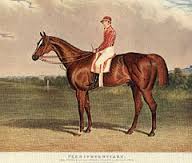plenipotentiary
英 [,plenɪpə'tenʃ(ə)rɪ]
美 ['plɛnəpə'tɛnʃəri]
- adj. 全权代表的;有全权的
- n. 全权代表;全权大使
TEM8
- plenipotentiary (adj.)
- 1640s, from French plénipotentiaire and directly from Medieval Latin plenipotentiarius "having full power," from Late Latin plenipotens, from Latin plenus "full" (see plenary) + potentem "powerful" (see potent). As a noun from 1650s.
- 1. Edwin H. Conger was envoy extraordinary and Minister Plenipotentiary.
- 埃德温·H.康格是特命全权公使。
来自柯林斯例句
- 2. She became Her Britannic Majesty's new ambassador plenipotentiary to the Republic of Lebanon.
- 她成为了英国女王陛下驻黎巴嫩共和国的新任全权大使。
来自柯林斯例句
- 3. The Constitution grants the president plenipotentiary powers to use military force to protect our national security.
- 宪法赋予总统全权来使用武力保卫国家安全。
来自柯林斯例句
- 4. The minister was given plenipotentiary powers in the trade negotiations.
- 该部长获有全权进行贸易谈判.
来自辞典例句
- 5. As an ambassador plenipotentiary, he represents the diplomatic image of his country.
- 作为全权大使, 他代表的是国家的外交形象.
来自互联网
[ plenipotentiary 造句 ]
